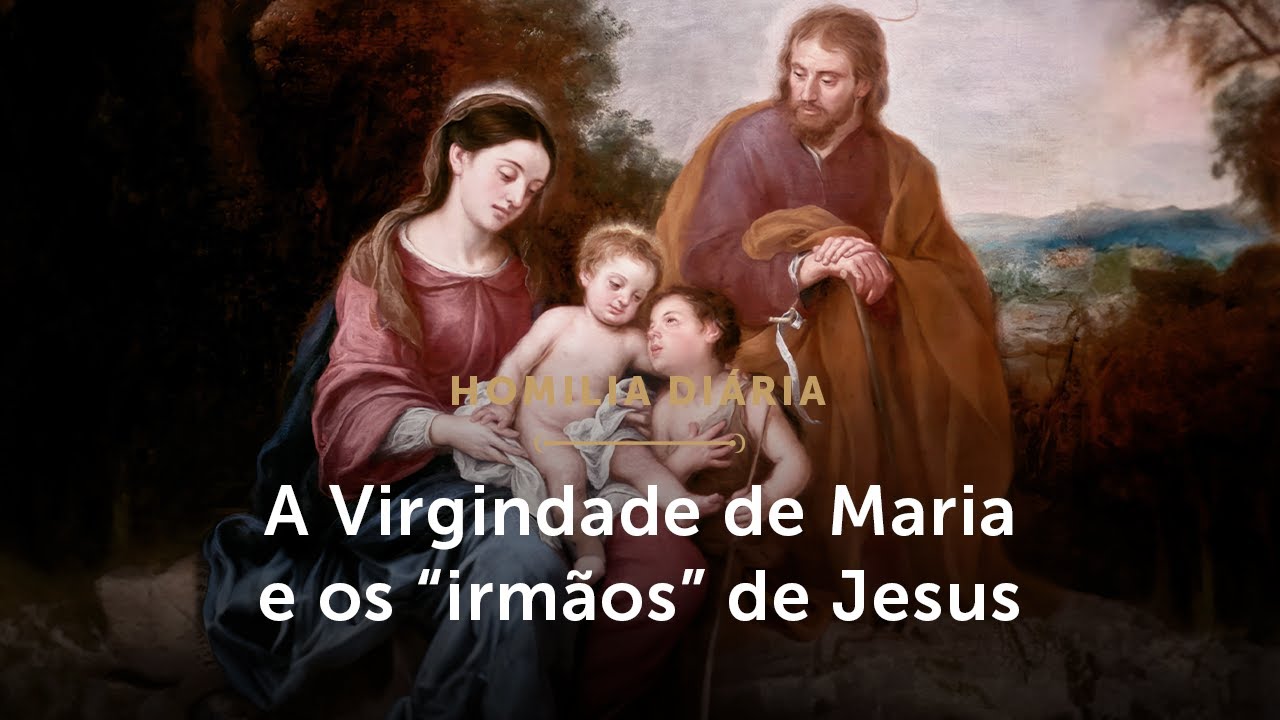How The Bible PROVES The Immaculate Conception
Summary
TLDRIn a response to a video questioning whether Mary ever sinned, the speaker argues against the misconception that Catholicism teaches Mary had to be sinless for Jesus to be born. They emphasize that the Catholic Church does not assert this necessity, citing Scripture to challenge the interpretation of sinfulness in Romans 3. The speaker supports the doctrine of the Immaculate Conception, arguing that both Genesis and Luke affirm Mary’s unique role and sinlessness. The discussion highlights theological differences between Catholic and Protestant views on sin, grace, and Mary’s significance in salvation history.
Takeaways
- 😀 The Catholic Church does not teach that Mary had to be sinless for Jesus to be born.
- 😀 Mary is considered by the Church to be sinless from her conception, supporting the doctrine of the Immaculate Conception.
- 😀 The speaker argues that biblical references to 'none righteous' do not exclude exceptions like Mary and Jesus.
- 😀 The interpretation of the word 'all' in scriptures like Romans 3 is not always absolute; context matters.
- 😀 Genesis 3:15 is cited as a prophecy that indicates Mary's sinlessness and her unique role in salvation.
- 😀 The greeting from the angel in Luke 1, calling Mary 'full of grace,' is interpreted as evidence of her sinlessness.
- 😀 The speaker emphasizes that being 'full of grace' implies that Mary was not touched by sin.
- 😀 God's ability to create humans without sin is referenced, arguing that He could have done so for Mary.
- 😀 The speaker challenges the view that the Immaculate Conception is unbiblical, providing scriptural support.
- 😀 The discussion highlights the need for accurate understanding of Catholic doctrine when critiquing it.
Q & A
What is the Catholic Church's belief regarding Mary's sinlessness?
-The Catholic Church believes that Mary was conceived without original sin, a doctrine known as the Immaculate Conception, which means she was sinless throughout her life.
Did the speaker claim that Mary had to be sinless for Jesus to be born?
-No, the speaker clarified that the Catholic Church does not teach that Mary had to be sinless for Jesus to be born. Instead, her sinlessness was part of God's plan for salvation.
What biblical passage do Protestants often cite to argue against the Immaculate Conception?
-Protestants frequently cite Romans 3:23, which states, 'For all have sinned and fall short of the glory of God,' to argue that Mary must have sinned.
How does the speaker interpret the term 'all' in Romans 3:23?
-The speaker argues that 'all' is not used absolutely but rather in a general sense, suggesting that there can be exceptions, such as Mary.
What is the significance of Genesis 3:15 in the context of Mary’s sinlessness?
-Genesis 3:15, referred to as the Protoevangelium, prophesies enmity between the woman (Mary) and the serpent (the devil), suggesting that Mary is protected from sin and corruption.
What does the greeting 'full of grace' imply about Mary?
-The greeting 'full of grace' (Luke 1:28) implies that Mary was graced in a perfect and ongoing manner, indicating her unique status as sinless.
How does the speaker view the relationship between grace and sin in Mary’s case?
-The speaker argues that being 'full of grace' means Mary is without sin, as grace comes from God and cannot coexist with sin.
What example does the speaker use to illustrate that not all biblical 'alls' are absolute?
-The speaker cites Mark 1:5, where it states that 'all the country of Judea and all the people of Jerusalem' came to be baptized, highlighting that this is not to be taken literally.
What does the speaker argue about God’s ability to create sinless beings?
-The speaker asserts that just as God created Adam and Eve without sin, He can also create and keep Mary from sinning, aligning with the belief in her Immaculate Conception.
How does the speaker address the Protestant claim that the Immaculate Conception is unsupported by the Bible?
-The speaker contends that the Immaculate Conception is supported by biblical texts and that a proper understanding of Catholic teachings is necessary for effective critique.
Outlines

此内容仅限付费用户访问。 请升级后访问。
立即升级Mindmap

此内容仅限付费用户访问。 请升级后访问。
立即升级Keywords

此内容仅限付费用户访问。 请升级后访问。
立即升级Highlights

此内容仅限付费用户访问。 请升级后访问。
立即升级Transcripts

此内容仅限付费用户访问。 请升级后访问。
立即升级浏览更多相关视频

The 4 Marian Dogmas of the Catholic Church

Ask Katolisitas: Dogma Bunda Maria

Homilia Diária | Os “irmãos” de Jesus e a Virgindade de Maria (Sexta-feira da 17ª Sem. do T. Comum)

Apologética Aula 1

Ask Katolisitas: Bunda Maria Tetap Perawan

LIFE OF MARY - Mother of Jesus Christ - A Video Narrative of Child Mary to Mother Mary
5.0 / 5 (0 votes)
